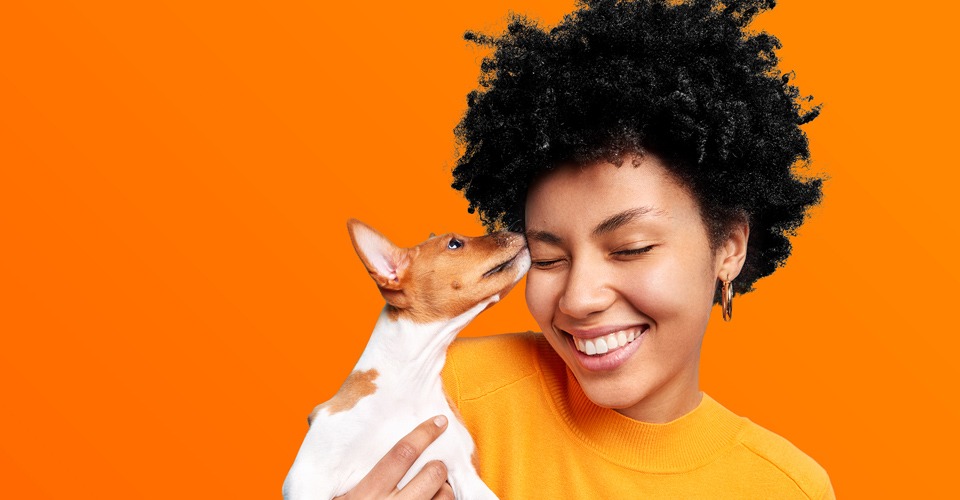Dr Paul Bernhardi has been at the Blue Cross since 2001 as a small animal vet. He has a keen interest in exotic animals and avian medicine and is the resident Pot-Bellied Pig Surgeon. He has 4 dogs, 5 cats, 3 birds and a tortoise. Dr Bernhardi is married to Samantha and has 2 kids Rebecca and Ethan. He loves cycling and running and does some events for charity. This blog is intended for informational purposes only. dotsure.co.za is not responsible or liable for any advice or any other information provided herein.
dotsure.co.za is not responsible or liable for any advice or any other information provided herein. If you have questions about your pet’s DNA or potential genetic diseases or issues, the best course of action is to consult your veterinarian as soon as possible.
One of the common questions we get from clients is if it does matter if my dog licks my face or if my dog kisses me on the face.
The answer is not the same for all our furry friends.
In the most cases dogs’ saliva and tongues do not carry zoonotic diseases, which means diseases that we can get from our dogs. A dog’s mouth contains just as many variants of bacteria as our mouths, 600+. It was generally believed that dogs’ mouths can be cleaner than the mouth of a human. When I look in the consulting room and smell the breaths of dogs, I hope this is not the case. I try not make a habit of examining my clients’ mouths; just those of my patients. Tartar and halitosis in dogs are generally started by bacteria and can lead to similar oral diseases that we get, i.e., gingivitis, caries, root tooth abscessation etc. The bacteria found in dogs’ mouths are specific to them and mostly different from those in our mouths. Swopping the saliva with healthy dogs should not cause any adverse effects, other than shrieks from the audience watching our party tricks on the latest version of “South Africa’s got Talent.”
However, dogs’ mouths can be contaminated by the environment they are in. The food they eat can influence their oral hygiene and oral environment. Some raw foods may contain zoonotic diseases that may be harboured in the mouth and saliva of our furry friends. The cooking and processing of dog’s foods tend to sterilize these pathogens in most cases. All raw food is not bad. It depends on where the raw ingredients are sourced and how they are stored. Diseases such as salmonella, tapeworm, Clostridium etc. may be caused. Remember, most dogs do lick themselves or their mates and some eat their own poop too. Some dogs also thrive on raiding the kitty litter box and one can just imagine how clean these are.
In areas with endemic rabies infections care should be taken with allowing dogs that you are not familiar with to lick you. Rabies is a zoonotic infection with no cure!
While our mucosal membranes of the mouth, nose, eyes and ears absorb bacteria very easily, open wounds are at a higher risk of harbouring and forming a suitable environment for culturing bacteria of all sorts. If we have our dogs licking wounds, which was widely used by the early Egyptians as wound healing techniques, it may create more infections and slower wound healing.
Good mouth hygiene is essential for health of our pets. This all starts with healthy well sources foods, raw, cooked or processed. Healthy treats need to be replaced or removed if left lying around. Bones can be the cause of cracked and broken teeth and together with hooves may cause blockages in the gut. If raw bones are left lying around for periods of time, they tend to attract flies and bacteria that may cause toxins that our pets may ingest. Brushing your pets’ teeth daily is always a good practice to start them with when they are still young. However, use the appropriate brushes and toothpastes. These are sold at vet-shops or at your local vet’s practice. Do not use human toothpastes as these contain xylitol and fluoride which are not well tolerated in the body of our pets.
So, the answer is in you knowing your dog and knowing it’s habits. Knowing what my dogs get up to, I stay away from this practice!



